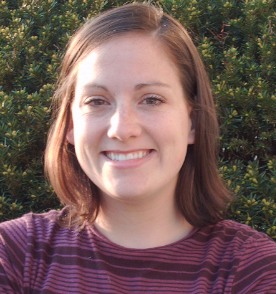Zuccarelli works towards career in bilingual medicine
Britton Zuccarelli ’07 earned a full-tuition scholarship to the University of Kansas School of Medicine, and plans to eventually practice bilingual medicine with a specialization in adolescent medicine, family practice or pediatrics. As an undergraduate she majored in biochemistry and molecular biology and Spanish, with a minor in chemistry.

How was your first year of med school?
I absolutely love it! We study one organ system per month, and Cornell’s block plan prepared me more than adequately for this type of learning environment. I also volunteer twice a month at a free, student-run health clinic in Kansas City, where I work as a student physician. And once a month I volunteer as a student physician at a bilingual clinic that serves the uninsured population of Kansas City. This summer I have an internship with the Planned Parenthood of Kansas City.
Did you feel well-prepared by Cornell?
I truly feel that my Cornell education prepared me tremendously for my post-graduate studies. Medical school involves high volumes of knowledge that must be absorbed quickly and regurgitated immediately. Thankfully, Cornell’s One Course At A Time system trained my mind to work diligently each day for a month and carry this knowledge across courses. While many of my classmates at KU found it difficult to adjust to KU’s “module” system, I adjusted without a hitch.
What was best about studying biology at Cornell?
The small class sizes, especially in laboratory sessions. As a medical student, I am responsible for actively participating in human dissection sessions, but this was nothing new to me since I had already taken two cadaver courses at Cornell. I especially enjoy being able to reflect upon my interactions with peers and professors at Cornell, in which we exchanged ideas and worked together towards a common goal in laboratory sessions. Many of my medical school counterparts regret only being an “ID number” to some of their professors, since their average class size in biology was often 300-400 students.
What other Cornell experiences were most meaningful?
I was fortunate enough to have a variety of research, internship and off-campus study opportunities. During my freshman year, I traveled to Mexico for one month to study Spanish. As a sophomore, I studied abroad in Bolivia for a semester to finish my Spanish major. During the summer of my sophomore year, I did research in Jeff Cardon’s microbiology laboratory and completed an internship with Proteus, a mobile health clinic serving the migrant farm worker populations across Iowa.
My junior year included a trip to Nicaragua, when I volunteered with Operation Walk. That summer, I had an internship at the University of Chicago Center for Molecular Oncology doing research. While I clearly had a number of special experiences at Cornell, I think it’s fair to say that my experience is not much unlike many other Cornell students.



